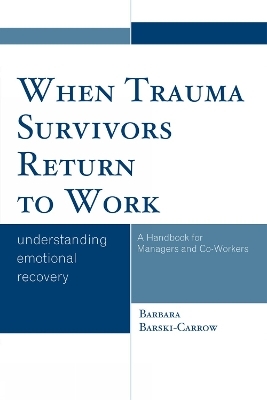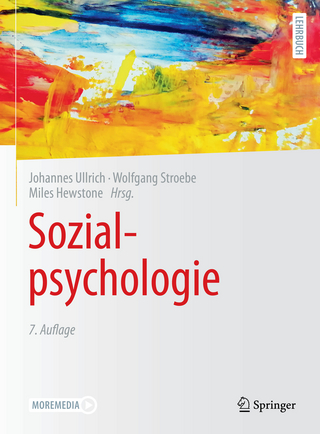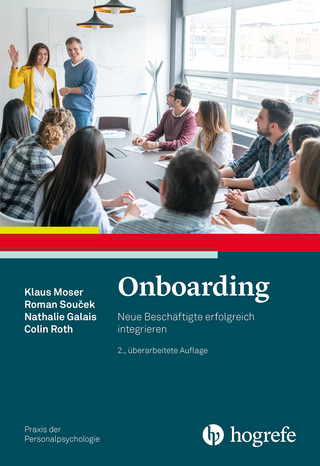
When Trauma Survivors Return to Work
University Press of America (Verlag)
978-0-7618-5030-4 (ISBN)
When Trauma Survivors Return To Work explains how managers and co-workers can help foster the process of emotional recovery for employees who have been traumatized and are returning to work. No other source clearly and positively teaches managers and co-workers how to treat fellow workers returning to the workplace after experiencing a rape, a burglary, an armed assault, a violent accident, or witnessing a brutal crime. No one explains what to say to those who have just been told they have a terminal illness, or how to treat an employee whose close family member has committed suicide. It is not helpful for co-workers to deny such traumatic events or remain silent, which is what often happens, or for managers to avoid directly communicating with the traumatized employee. Is there something that managers and co-workers can do to be truly helpful to such sensitively wounded people? The answer is yes. In this illuminating educational approach, Dr. Barski-Carrow shows how managers and co-workers can learn simple ways to make the workplace a better environment for emotional healing. Barski-Carrow offers a simple, well-researched way to provide those basic practical skills and, with absorbing stories, shows how relationships in the workplace can indeed provide a healing force for traumatic experiences.
Barbara Barski-Carrow earned her doctorate in adult education and human resources from Virginia Tech and is principal of Carrow Associates. Her work focuses on professional relationships, helping managers and employees relate better when individuals return to work after a traumatic life event. Through more than thirty years of experience in the field, she has created educational forums for senior management in both the public and private sectors.
Chapter 1 Acknowledgments Chapter 2 Introduction Part 3 Part I. Understanding the Traumatic Life Experience (TLE) Chapter 4 Chapter 1. Why I Wrote This Book Chapter 5 Chapter 2. What is a Traumatic Life Experience (TLE)? Chapter 6 Chapter 3. What is it Like to Be a Returning TLE Employee? Chapter 7 Chapter 4. What Can Managers Do? Chapter 8 Chapter 5. What Do You Tell Co-Workers? Chapter 9 Chapter 6. What Does Psychology Tell Us About Trauma? Chapter 10 Chapter 7. What Can An Employee Assistance Program Do? Part 11 Part II. Taking Practical Steps Chapter 12 Chapter 8. What is a Study Circle? Chapter 13 Chapter 9. How Does an Organization Set Up a Study Circle? Chapter 14 Chapter 10. Putting Out a Welcome Mat: The First Study Circle Chapter 15 Chapter 11. Lending a Listening Ear: The Second Study Circle Chapter 16 Chapter 12. Offering a Helping Hand: The Third Study Circle Part 17 Part III. Some Special Circumstances Chapter 18 Chapter 13. When an Entire Group is Traumatized, How Do Managers and Employees Cope? Chapter 19 Chapter 14. How Does an Employee's Trauma Affect His Children? Chapter 20 Chapter 15. How Can You Help Yourself After a Traumatic Life Experience? Chapter 21 Chapter 16. What Challenges Face a Facilitator? Chapter 22 Appendix: Study Circle Handouts Chapter 23 References
| Verlagsort | Lanham, MD |
|---|---|
| Sprache | englisch |
| Maße | 154 x 233 mm |
| Gewicht | 279 g |
| Themenwelt | Geisteswissenschaften ► Psychologie ► Arbeits- und Organisationspsychologie |
| Geisteswissenschaften ► Psychologie ► Traumatherapie | |
| Sozialwissenschaften ► Kommunikation / Medien ► Kommunikationswissenschaft | |
| Sozialwissenschaften ► Pädagogik | |
| ISBN-10 | 0-7618-5030-9 / 0761850309 |
| ISBN-13 | 978-0-7618-5030-4 / 9780761850304 |
| Zustand | Neuware |
| Haben Sie eine Frage zum Produkt? |
aus dem Bereich


